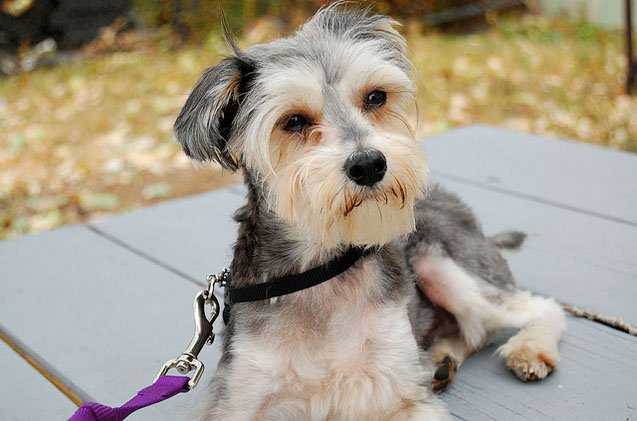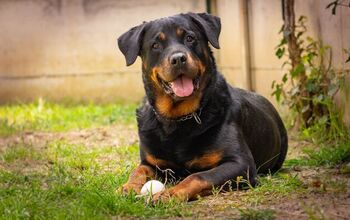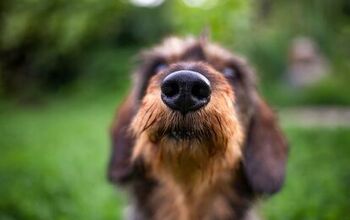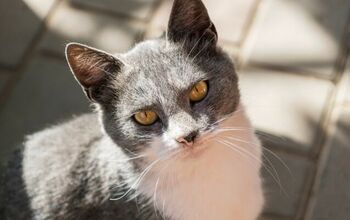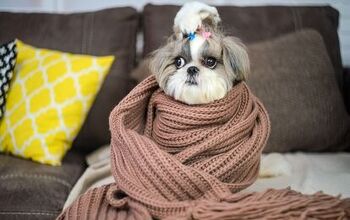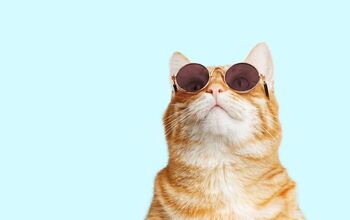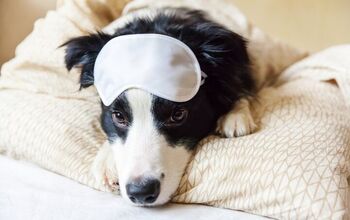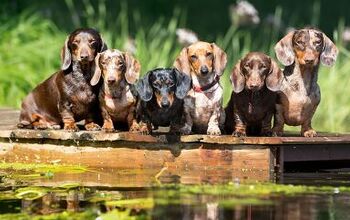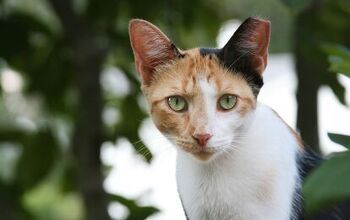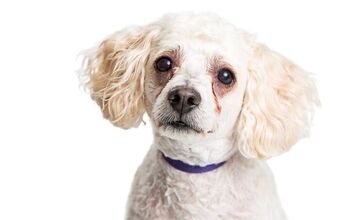Snorkie


About Snorkie
Snorkie Basics
No, this isn’t a device to help you breathe underwater. That would require a typo. A Snorkie is a beautiful little dog with plenty of heart, spunk, and spirit. These little pups will steal your heart in mere seconds and while the designer dogs might not be among the best-known breeds on the market, they have been rising steadily in popularity over the last few years. And that increase in attention was all for excellent reasons too! As the offspring of two purebred dogs (that would be the Miniature Schnauzer and the Yorkshire Terrier for those keeping score at home), the Snorkie has a lot to offer to his family. It’s practically impossible not to love this dog. You’ll see…
In spite of his hilarious little name, the Snorkie is an intelligent little dog that thrives on human interaction and is a devoted family pet. Affectionate and cuddly, this hybrid loves to spend time with his owners, whether it’s napping while you watch TV, playing in the backyard, or going on walks in the park. But, even though this Miniature Schnauzer and Yorkie mix is the ideal companion, sitting in laps is not the only role it excels at. These courageous and alert hybrids also make great watchdogs. Sure, their miniature size prevents anyone from taking them too seriously, but that’s why we said “watchdogs” and not “guard dogs.”
Of course, while designer dogs stand to inherit plenty of lovely traits from their purebred parents, there are some less desirable qualities that can appear in the mix, too. No dog is perfect after all. They all have their pluses and minuses. His terrier lineage means he is highly spirited and is full of playful vigor so finding ways for him to expend his energy is important. Because of his social nature, Snorkies don’t do well when left on their own for long periods of time; chewing and barking can become a problem. So if you are out of the house on a daily basis, this breed may not be the ideal fit for your family.
If you’re considering adding a Snorkie to your home, then you’ve come to the right place. Keep your eyeballs glued to this page and we will reveal everything that you need to know about becoming a pet parent to this wonderful animal.
The Snorkie is an intelligent little dog that thrives on human interaction and is a devoted family pet.
Origin
The designer dogs might be a popular trend in the world of pets, but there is still a lot we don’t know about hybrids. For instance, the history of these types of breeds is often quite mysterious, as there is no record about when or where breeders started developing a particular mix. Apart from a few most popular hybrid breeds with a documented origin, the history of designer dogs is blurred together with unintentional mixes of purebred dogs that have been around…well, they’ve been around pretty much forever. Unfortunately, the Snorkie is one of those breeds whose story leaves us with only a few clues about their origin.
Very little is known about the history of the Snorkie, but here is everything that we’ve been able to find. We know that the breed originated in the United States, which is true of the majority of hybrids that are available. The designer dog phenomenon was born with the creation of Labradoodle in the 1980s, so it’s safe to assume that the Snorkie came to be shortly after that. It was probably sometime in the last 30 years.
The Snorkie is a mix of terriers ( Miniature Schnauzer and Yorkshire Terrier) and it really shows. Because his lineage was originally bred for hunting rodents – the Yorkie in English clothing mills and the Miniature Schnauzer on farms in Germany, the Snorkie will almost certainly exhibit some of these hunting characteristics.
Pedigree
Snorkies are a mix of two pure bred Miniature Schnauzers and Yorkshire Terriers.
Both of his parents are breeds in good standing, with long histories as family pets, companions, and show dogs. This history stretches all the way back to their humble beginnings as vermin hunters. However, despite this impressive family tree, the Snorkie breed is not recognized by the American Kennel Club or any of the other official canine organizations. Even though the label designer dog makes these mixes quite a bit more appealing to many people, the fact remains that as a crossbreed, Snorkie can’t have official pedigree papers. It’s a shame, but hopefully that will change over time.
Nevertheless, this shouldn’t make you think less of these lively dogs. Their beloved parents provide enough of a guarantee that this hybrid has a lot of great qualities. Paper or no paper, there’s no denying that Snorkie is one fabulous pooch. One well worth bringing into your home regardless of what the AKC has to say.
Food/Diet
If your Snorkie puppy is your first pet, you should be prepared for a period of trial and error before you get everything just right. The same goes for their diet! A change in living arrangements can impact your Snorkie’s eating habits so be sure to place food and water bowls in the same locale for at least 3-5 days to help create consistency. As a pup, he should be fed three to four times daily with smaller meals that are easier for him to digest. Otherwise he will eat everything at once and his tiny little stomach won’t be able to handle it. That’s not just bad for your little pup’s health, it also means you’ll be doing some unenviable clean up.
By 8 weeks he should be on a diet of only dry dog food and while you can offer treats between meals, do not free feed him. It might be tempting to cave in under that adorable puppy eye stare, but having his food split into two meals will make sure your new pooch doesn’t get obese as he grows up. Once he has reached maturity (typically between nine and 12 months) you can shift him to a premium, dry food for adult dogs. Kibble will meet all of their nutritional needs and it’s convenient, as it’s easily available and tasty to dogs.
Because of the propensity of small dogs to have dental problems, dry food should be his diet going forward. If you are concerned in any way about your Snorkie’s diet or would like to change his food, it’s alway wise to consult with a veterinarian first. While all pet food manufacturers and pet blogs provide useful feeding guidelines, it would be a mistake to treat these guidelines as gospel. All dogs are different after all and quite often they each have their own dietary needs. Only your vet will have the expertise and experience necessary to assess precisely what your personal pup’s little tummy needs. So always differ to a vet before making any major changes to your doggie’s diet.
The Snorkie is a bright little dog that is considered easy to train.
Training
The Snorkie is a bright little dog that is considered easy to train. Their love of praise, affection, and food can be used effectively in this regard. Make sure to take advantage of these traits! Starting training while they are still young is very important. The breed is quick to recognize commands and can learn tricks very swiftly. The best advice is to not bring a new puppy home unless you have a few days to spend with him, interact with him regularly, and be alert to signs of needing a bathroom break (this is particularly important because young puppies have little to no bladder control). Be careful not to scold or punish when accidents happen. Instead, focus on praise and be cognizant of the fact he will need to relieve himself at least every three hours during the night and after meals and/or drinking. Be ready for this level of commitment and set your little guy up to succeed in his potty training. Patience and persistence will be crucial to your success. It will pay off eventually and stick around long term. It’s also important to remember that focusing on negative reinforcement and punishment during these tender years is closer to abuse than training and will never yield the results that you crave. There’s huge a difference between establishing yourself as the alpha in the relationship with your pupper and making them fear you.
Weight
For many dog breeds, weight and size can dictate so many crucial aspects of their care. The weight and height of Snorkies is directly related to lineage and is dependent on which of the two parents is predominant in the gene pool. Typically, the Schnauzer can weigh in at 20 pounds while Yorkies’ average a mere 5 pounds. For this reason, Snorkies weight will range between 5 to 15 pounds but they typically have a sturdier frame than the more fragile Yorkie. Similarly, Miniature Schnauzers can grow to be around 14 inches at the shoulders while Yorkies land at a mere 7 inches and Snorkies somewhere in between.
As such, the Snorkie is a toy to small breed, and can thrive in a variety of housing conditions. Just make sure that they are never cooped up and without free space to snooze, play, and stretch.
Temperament/Behavior
Snorkies are both high spirited and tenacious. They can also prove to be rather stubborn. As mentioned earlier, training when they are young can help prevent your Snorkie pup from forming bad habits. Because they are hybrid dogs, they can inherit temperaments from either parent, or in some instances both parents. It’s impossible to predict exactly how this will turn out. With first generation hybrids, every puppy is different, even within the same litter. We have yet to learn about characteristic of second generation Snorkies, but if we judge by the hybrid’s initial personality, there’s a lot to look forward to. These pooches are almost unfairly lovable.
Common Health Problems
The challenge for any hybrid breed dog is that it can pick up the health challenges of either parent (or both). Mixing pure bred dogs can help alleviate or eliminate many health challenges experienced by specific breeds. From the Yorkie side, dental issues caused by over-crowding can be a problem in tiny jaws and the Miniature Schnauzer brings issues associated with high fat levels such as pancreatitis. As with any breed, feeding a quality low or non-fat food should help avoid these problems. Overall, the Snorkie is a healthy dog. However, it’s always important to maintain regularly scheduled check-ups with your vet (especially as your pup enters his senior years), so that any potential health issues can be identified and treated as early as possible.
Life Expectancy
The average life span of a Snorkie is 12 to 15 years. For such a small doggo, this sure is an impressive number! Especially when you consider that the average maximum lifespan for most dog breeds is 15 years! The Snorkie can reach the maximum end of that spectrum, and become a steadfast companion always by your side. This, of course, is only possible if you offer some help along the way. A dog’s lifespan is directly connected to the care you offer – from diet, exercise, living conditions, affection, and veterinary care. Take all of this seriously, and you can certainly expect that your pet will live for a solid number of years.
Exercise Requirements
Exercise is an important part of every dog’s life. Still, some breeds are less enthusiastic about physical activities than others. Snorkie, like many of the smaller breeds, can be a fairly active and energetic pupper. While perfect for smaller spaces, the Snorkie is an active little dog that loves his walks and play times. Because of his terrier nature, he has loads of energy and both walks and romps should be provided on a regular basis. He will be able to live an apartment life, but only if you take him to exercise on a regular basis (frankly, that’s true of his humans as well). A great solution is a home with a fenced-in yard, where your pet can freely satisfy its need for fun and exercise. Of course, if this is not an option, you can always head out to the park or have a brisk and fun walk.
Either way, it is crucial not to overlook this important need of your pet. If you leave a Snorkie cooped up inside for longer periods of time, they might develop some bad behavioral issues. These include separation anxiety, incessant barking, destructive behavior (chewed up shoes and furniture), and so on. This can eventually turn into even worse things, such as apathy, loss of appetite, and worse. So make sure you will always have time in your daily schedule to accommodate the needs of your little furry friend. If this is not possible – a different pet might be better.
AKC
The little Snorkie is unfortunately not a recognized breed with the leading registries. After all, as a designer dog, the Snorkie cannot be a member of the American Kennel Club; however he is recognized by the following registries: American Canine Hybrid Club, Designer Dogs Kennel Club, Dog Registry of America, Inc., International Designer Canine Registry, and the Designer Breed Registry.
Snorkies are both high spirited and tenacious and they can prove to be stubborn.
Coat
The definite strong point of every doggo is their lovely coat, giving them their distinct appearance and character. And this coat will need to always be spic and span. Because Schnauzers and Yorkies have high maintenance coats, you should expect to spend time grooming your Snorkie. He will typically have the undercoat associated with a Schnauzers as well as a thicker topcoat similar to that of the Yorkie and it will require routine, frequent maintenance. Snorkie coloring will depend on his parentage and can be any combination of blue, black, tan, silver, or white. These dogs are also low-shedding and hypoallergenic.
Either way, you will definitely have to give some attention to their coat and its quality. It is best to establish a steady routine of daily care: a light brushing once per day will be great for maintaining that tidy look. Add to that a once-per-month bathing or visit to the groomers, and your Snorkie will always look their best!
Puppies
Puppies from any small breed dog will need to be treated with a little extra care – similar to how you would treat an infant. Snorkie puppies are so tiny and endlessly cute that every eager visitor will want to snuggle them and squeeze them. But you’ll have to be protective of the pups during this time, as they can easily get injured or scared. Also, how you interact during their young stage will be critical to their socialization, so ensure when kids play with him, they are gentle, don’t shout, and are under supervision. Be sure to bring him home when you have some time to spend with him, and begin the training process. It is best to start training very early, as puppies tend to soak up all the information quickly, and learn with ease. If you want the ideal results, start on time. That way you will ensure that your Snorkie grows up to be a well-behaved, exemplary lil’ pooch!
Photo credit: Diaz & Diaz; pchorsedoc/Flickr

Sharing space with three seriously judgy Schnoodles and a feline who prefers to be left alone. #LivingMyBestLife
More by Mary Simpson



